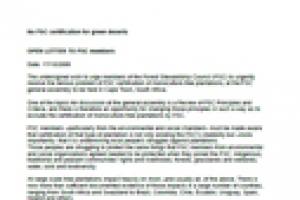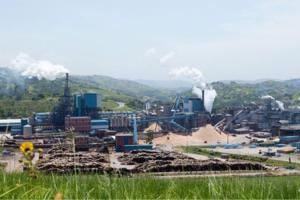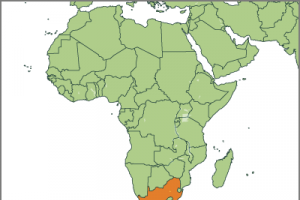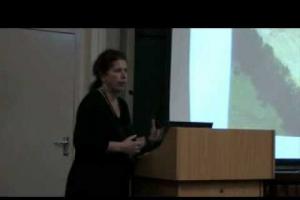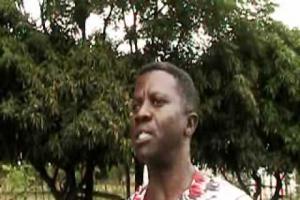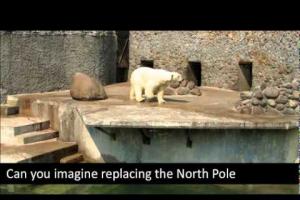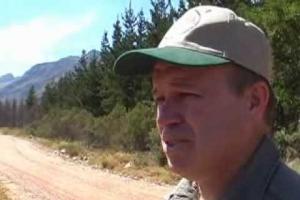By Geasphere, South Africa
Since 2004,21st September is a special day used to raise awareness about the impacts of large-scale timber plantations, to encourage action, to highlight alternative ‘forestry’ models andto celebrate the progress made in the resistance against the industrial timber production model.Sustained resistance is critical, because timber plantations seriously affect the long-term ecological sustainability in areas where they have been established.
South Africa
Other information
19 September 2014
Bulletin articles
11 September 2013
Bulletin articles
30 April 2013
In March 2013, the presidents of the so-called BRICS countries – Brazil, Russia, India, China and South Africa – met in Durban, South Africa. Surrounded by security barriers so that no one who would dare to protest could get near them, the presidents of these nations discussed a number of issues, including cooperation proposals.
One of the proposals most widely highlighted in coverage of the event was the creation of a BRICS development bank, with USD 50 billion in seed capital contributed in five equal parts by the bloc’s member countries.
Bulletin articles
30 September 2012
Sappi Limited, South African producer of pulp and paper, plans the construction of a biomass combustion plant at Ngodwana Mill, Mpumalanga. It has a proposed capacity of about 50 megawatt, which will supply to the public grid. Misleadingly, this investment is called ‘Green Energy Power Project' (GEPP) – in reality, the power is as green as the inside of the Sappi boiler.
Other information
30 August 2012
Members of farmers’ organizations, women’s movements and civil society organizations from South Africa, Zimbabwe, Malawi, Swaziland, Lesotho, the DRC and Mozambique gathered on August 15-16 in Maputo, Mozambique, to analyze the multi-dimensional global crisis and the response of African governments.
Bulletin articles
29 January 2012
In the reports about the effects of industrial tree plantations of eucalyptus, pine or oil palm on peoples' lives, negative impacts such as conflicts over land tenure, depletion of water resources, lack of work opportunities and destruction of local economies are most frequently mentioned. Specific impacts on fundamental aspects of people's culture are usually mentioned less or not at all, although the consequences can be tremendous when the culture of a people is strongly linked to their identity, self-esteem, well-being and ultimately to their survival.
Bulletin articles
30 November 2011
Next week an international farmers' conference will take place in Mali to stop land grabbing. Organized by La Via Campesina, it is aimed at opening a space to listen to and learn from local peasants, mainly from African countries, on what they have to say about land grabbing and to unite forces to resist the process and build future strategies.
Bulletin articles
28 February 2011
GeaSphere is an environmental pressure group working towards a more sustainable model of living based on lower impact agriculture practices that are environmentally sustainable, socially just and which ensures food security and promotes locally based economies and poverty alleviation in the southern African region. A major threat to the local integrated environment is the large scale industrial timber plantation industry, responsible for the transformation of millions of hectares of bio diverse grasslands, the primary vegetation type in most of Southern Africa’s timber growing regions.
Bulletin articles
30 December 2010
At a time when water resources are becoming scarce and ever more threatened by global warming and climate change, a research carried out in South Africa becomes quite timely. After 70 years of monitoring in the Jonkershoek reserve, in the Western Cape Province, the study reveals the impact of monoculture tree plantations on underground water and streamflow. This is very important, given that plantations use significant amounts of water and have expanded greately in South Africa, a country with scarse water resources.
Other information
29 April 2010
GeaSphere and EcoDoc have just launched a report by Liane Greeff of EcoDoc Africa, “Thirsty alien trees, no water left and climate confusion – what version of sustainable development are we leaving our children”. The paper highlights the dramatic contradiction of the expansion of water intensive industrial timber plantations in South Africa under planned development programmes, and the scarce water resources of the country.
